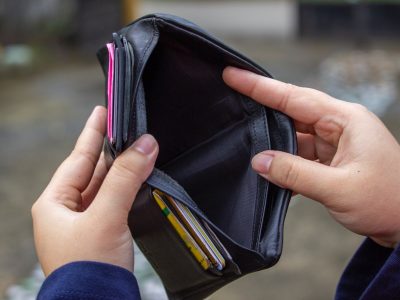You’ve probably seen dozens of products and beverages containing CBD over the last couple years. CBD stands for cannabidiol, one of the main active ingredients of marijuana. It’s derived from the hemp plant, which is a close cousin to the marijuana plant. However, it does not contain tetrahydrocannabinol (THC), which means it won’t produce the traditional high that comes with smoking or ingesting its cousin. Dozens of manufacturers and marketing campaigns have been talking up the health benefits of CBD as of late, including its potential ability to help with insomnia, anxiety, epilepsy, and even PTSD.
You can find cannabidiol-infused tea, coffee, energy drinks, candles, essential oils, pet food, burgers, and even toothpaste. Demand for CBD-infused products has skyrocketed over the last few years with over a billion dollars in U.S. consumer sales this year alone.
As a care provider, some of your patients may have questions about this new health trend. Let’s separate fact from fiction when it comes to using cannabidiol.
Potential Health Benefits
According to a survey by Brightfield Group, a cannabis research firm, more than 60% of CBD users have taken it for anxiety. These three letters have been associated with a range of health benefits over the years; it’s even been viewed as a possible alternative to opioids and other pain killers, but does it actually work?
It’s been proven to be most effective when it comes to treating various childhood epilepsy syndromes, including Dravet syndrome and Lennox-Gastaut syndrome (LGS), both of which may not respond to traditional medication. In several studies, cannabidiol reduced the number of seizures in some children, and in other cases it was able to stop them altogether. The FDA has even approved the first ever cannabis-derived medicine for these conditions known as Epidiolex, which contains CBD.
Yet, the efficacy of the substance tends to get a little murkier when it comes to treating everyday problems like stress, anxiety, pain, and insomnia. Cannabidiol oils have been shown to reduce pain and inflammation in animals, but more research is needed to see whether this applies to humans as well.
As for treating anxiety and PTSD, a recent study in Neuropsychopharmacology suggests that CBD may help reduce social anxiety and nervousness in shy individuals. However, another study showed that cannabidiol did not significantly change the stimuli in individuals when exposed to unpleasant words or images. According to researchers, if cannabidiol does have a calming effect on users, it would change their responses to these images. In another study in the Journal of Chemical Neuroanatomy, rodents seemed to adapt better to stressful conditions and exhibited less depressive-like behavior after taking it, but this may not apply to humans.
The American Psychiatric Association currently does not recommend CBD for anxiety, PTSD, insomnia, or depression. According to Dr. Smita Das, Chair of the AMA’s Council on Addiction Psychiatry’s cannabis work group, using cannabidiol for these various conditions may delay proper mental health care. For example, a patient may decide to keep using these products instead of seeing a licensed psychologist.
Potential Side Effects
Using cannabidiol can lead to nausea, fatigue, and irritability. It can also increase coumadin levels in the blood, which can lead to blood thinning. This may also raise the levels of certain medications in the blood. Unlike marijuana, CBD does not lead to addictive tendencies, but these products aren’t as regulated as other OTC supplements and medications.
Consumers may easily get more than they bargained for when purchasing CBD products from unlicensed sellers. Some products may contain THC or other unexpected, if not harmful, ingredients, such as dextromethorphan and synthetic cannabinoid. Users may fail a drug test if they continue using these products.
Some products also may contain different amounts of CBD than what’s advertised. A recent study of 84 different products found that fewer than a third contained the same amount of cannabidiol as what they claimed on their labels.
In 2019, 1,090 people contacted various poison control centers about CBD, according to the American Association of Poison Control Centers, due to lasting nausea, diarrhea, and other unpleasant side effects. It’s not always clear how much cannabidiol individuals should be taking, so some users may overdose without realizing it. As new products continue hitting the market, consumers may not know what to look for when shopping online. This can lead to confusion and disruptive side effects that may end up doing more harm than good.
The Jury is Still Out
CBD remains legal throughout the U.S. Your patients can easily find thousands of cannabidiol-laced products online or even at a local café or health food store. However, it’s important to remind your patients that CBD is meant to be used as a supplement, not a replacement for their medication. Remember: It has not been approved by the FDA for treating chronic pain, insomnia, depression, anxiety, or PTSD. Cannabidiol may ultimately prove effective when it comes to treating these various conditions, but more human clinical trials are needed.
If your patients decide to use these products, they should make sure they buy from reputable brands and licensed manufacturers. Talk to them about the potential side effects and the hazards of buying from unreputable sellers. It’s not clear how much CBD your patients should be taking or how often, so advise them to go slowly and see how they feel before making these products a part of their daily routines.

















